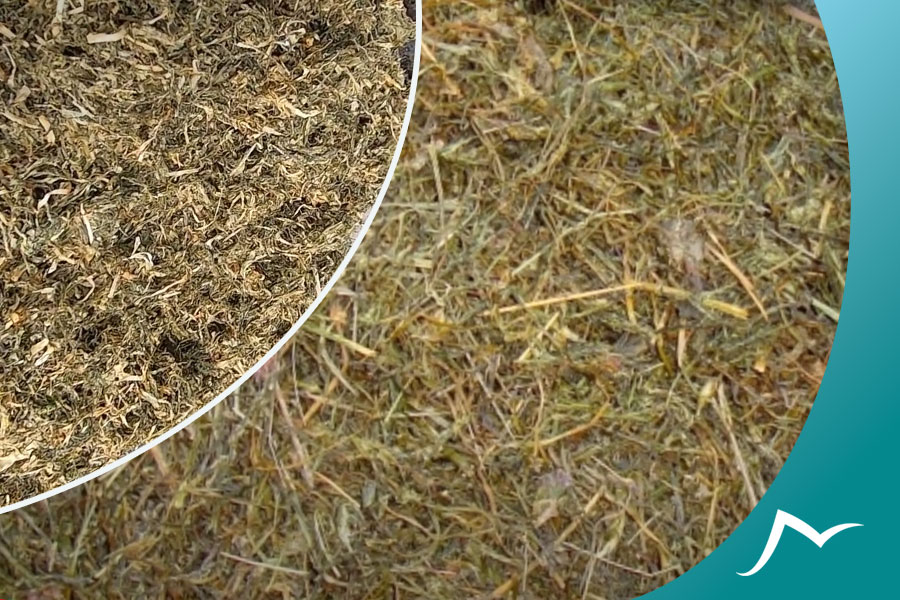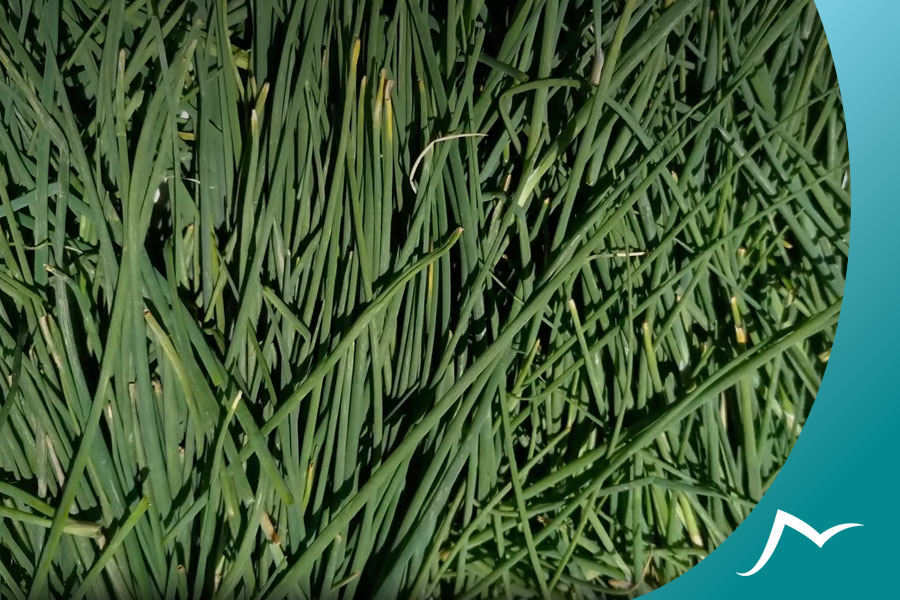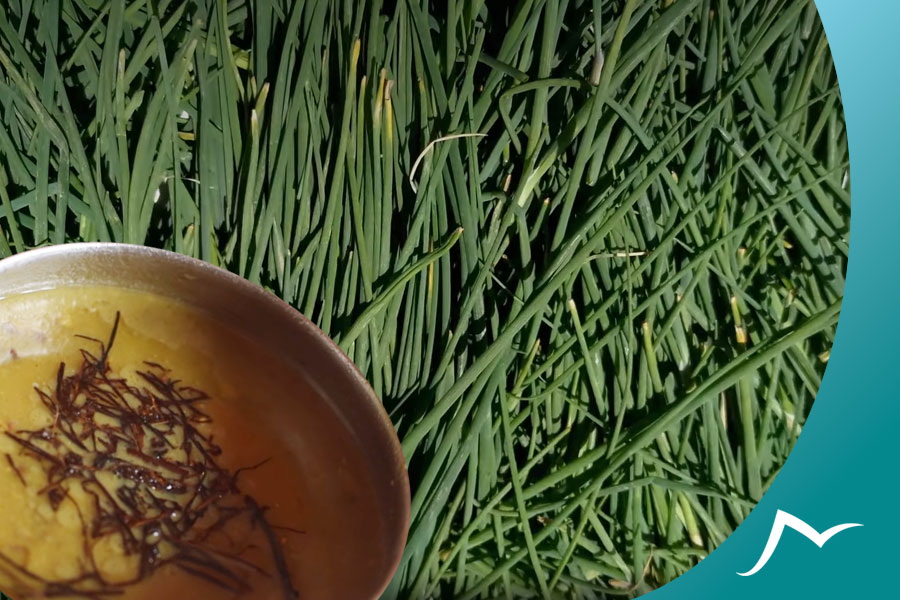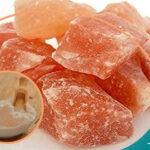Nepali cuisine is known for its distinct flavors and the use of fresh herbs and spices. From the fragrant aroma of cumin to the earthy taste of coriander, Nepali dishes are often infused with a range of herbs that add depth and complexity to the food. One of the most important herbs in Nepali cuisine is Jimbu (Allium hypsistum), a small, delicate plant with a strong, pungent flavor.
Jimbu is a herbaceous plant that is native to the high Himalayan regions of Nepal. It is often referred to as a “magical herb” due to its unique flavor and ability to enhance any dish’s taste. Jimbu is commonly used in Nepali cuisine to add a distinct aroma and taste to various dishes, especially dal bhat (a traditional Nepali meal consisting of lentil soup and rice).
The use of Jimbu in Nepali cuisine can be traced back to ancient times when it was used for medicinal purposes and as a culinary ingredient. Due to its rarity and high demand, Jimbu was often used as a form of currency and was highly valued by the people of Nepal.
This article will explore the history, uses, and health benefits of the Nepali herb Jimbu. We will delve into the cultural significance of Jimbu in Nepali cuisine and traditions and discuss its evolution over time. Additionally, we will examine the culinary uses of Jimbu and offer tips on how to cook with this unique herb. Finally, we will explore the health benefits of Jimbu, including its nutritional and medicinal properties.
By the end of this article, you will have a deeper understanding of the importance of Jimbu in Nepali culture and a greater appreciation for the role that herbs play in creating delicious and healthy dishes. So, let’s dive into Nepali herb Jimbu and discover its rich history and unique flavor profile.
History and Cultural Significance of Jimbu
The Nepali herb Jimbu has a rich history and cultural significance in Nepali cuisine and traditions. In this article, we will explore the origin of Jimbu, its historical use in Nepali cuisine, its cultural significance, and how it has become a staple ingredient in modern-day Nepali cooking.
Origin of Jimbu and Its Historical Use in Nepali Cuisine
Jimbu belongs to the onion family and has a strong, pungent flavor and aroma. Historically, Jimbu was used in Nepali cuisine for its medicinal properties and culinary uses. It was believed to have various health benefits, including improving digestion, reducing inflammation, and promoting overall well-being.
Cultural Significance of Jimbu in Nepali Culture and Traditions
Jimbu has a significant cultural significance in Nepali culture and traditions. In many Nepali households, it is considered a must-have herb in the kitchen, especially during winter. Jimbu is commonly used in traditional Nepali dishes such as dal bhat and aloo tama (potato and bamboo shoot curry).
Jimbu is also used in various religious and cultural ceremonies in Nepal. It is often offered to deities during religious ceremonies and is believed to have to purify properties. Jimbu is also used in traditional Nepali medicine to treat various ailments, including colds, coughs, and digestive issues.

How Jimbu Has Evolved and Its Modern-Day Uses
Over time, the use of Jimbu in Nepali cuisine has evolved to include various modern-day dishes. For example, it is now commonly used in soups, stews, and curries to add a unique flavor and aroma. Jimbu is also used in modern-day fusion dishes, paired with other ingredients to create unique and innovative flavors.
In recent years, Jimbu has gained popularity outside Nepal, particularly among food enthusiasts and chefs. It is now used in international cuisines, where its unique flavor profile is appreciated and celebrated. Jimbu is now also being cultivated in other parts of the world, including Europe and North America.
As Nepali cuisine continues to evolve and gain popularity worldwide, the use of Jimbu is also expanding, and it is now being appreciated and celebrated by food enthusiasts and chefs worldwide.
Culinary Uses of Jimbu
Nepali herb Jimbu has a unique flavor and aroma that adds depth and complexity to many traditional Nepali dishes.
Jimbu is used in traditional Nepali dishes, including dal bhat, aloo tama and other soups. Jimbu is added to the soup just before serving, giving it a unique flavor and aroma. Jimbu is added to the curry at the end of the cooking process, adding a distinctive flavor.
Tips for Cooking with Jimbu and How to Incorporate it Into Your Recipes
If you want to incorporate Jimbu into your recipes, there are a few tips to keep in mind. First, it is important to use Jimbu sparingly, as its flavor and aroma can be quite strong. Start with a small amount and adjust the quantity according to your taste preferences.
When cooking with Jimbu, it is best to add it towards the end of the cooking process, as this will help to preserve its unique flavor and aroma. This is particularly important if you use Jimbu in a dish that requires a long cooking time, such as a stew or curry.
Jimbu can be used in various dishes, including soups, stews, curries, and salads. It pairs particularly well with lentils, soups, and vegetables. You can also experiment with using Jimbu in fusion dishes, which can be paired with other flavors to create unique and innovative dishes.
To incorporate Jimbu into your recipes, add a pinch to soups or stews, or use it as a seasoning in salads or dressings. If you want to incorporate Jimbu into your recipes, start with a small amount and adjust to your taste preferences. Experiment with using Jimbu in different dishes and as a seasoning in dressings or oils. With some experimentation, you can discover this Nepali herb’s unique flavor and aroma and incorporate it into your culinary creations.
Health Benefits of Jimbu
Nepali herb Jimbu not only adds a unique flavor and aroma to dishes but also offers a range of potential health benefits.
Jimbu is a rich source of several vitamins and minerals, including vitamins C, A, potassium, calcium, and iron. It also contains several essential oils contribute to its unique flavor and aroma. The herb is often used in small quantities and contributes little to overall nutrient intake. Nevertheless, the vitamins and minerals present in Jimbu may have potential health benefits.
Jimbu has a long history of use in traditional Nepali medicine for its potential medicinal properties. The herb is believed to have antibacterial and antifungal properties, which may help to prevent and treat infections. It also treats stomach and digestive issues, such as indigestion and bloating.
Jimbu has also been used in traditional medicine to treat respiratory issues like coughs and colds. The herb is believed to have expectorant properties, which help to loosen phlegm and mucus in the respiratory tract, making it easier to expel.

Discussion of Recent Scientific Studies on the Health Benefits of Jimbu
Recent scientific studies have provided some support for the potential health benefits of Jimbu. One study found that the essential oils in Jimbu have antioxidant properties, which may help protect against oxidative stress and inflammation in the body. Another study found that Jimbu may have potential as a natural insecticide, which could have implications for pest control in agriculture.
One study also explored the potential use of Jimbu as a natural preservative in food. The researchers found that Jimbu had antibacterial properties against several foodborne pathogens, suggesting that it could be used as a natural preservative in certain foods.
Overall, while more research is needed to fully understand the potential health benefits of Jimbu, early studies suggest that the herb may have a range of potential applications in medicine, agriculture, and food preservation.
FAQs
What is the Nepali herb Jimbu?
Nepali herb Jimbu is a perennial herb commonly used in Nepali cuisine.
What does Jimbu taste like?
Jimbu has a unique and intense flavor and aroma similar to onions and garlic.
How is Jimbu used in Nepali cuisine?
Jimbu is typically used as a seasoning in traditional Nepali dishes like dal bhat, aloo tama, and pickles.
What are the nutritional properties of Jimbu?
Jimbu is a rich source of vitamins A and C and essential minerals like calcium and iron.
What are some of the potential health benefits of Jimbu?
Some studies suggest that Jimbu may have anti-inflammatory, anti-microbial, and anti-cancer properties.
Is Jimbu easy to grow?
Jimbu is a hardy herb that is relatively easy to grow in most climates.
Where can I buy Jimbu?
Jimbu can be found in Nepali markets and specialty stores or purchased online.
Can Jimbu be substituted with other herbs?
While other herbs like spring onions or chives may offer a similar flavor, there is no exact substitute for Jimbu.
How should Jimbu be stored?
Jimbu should be stored in a cool, dry place, away from direct sunlight and moisture.
How can I incorporate Jimbu into my cooking?
Jimbu can be added to soups, stews, and curries or sprinkled over salads and roasted vegetables.
Does Jimbu have any side effects?
Jimbu is generally safe to consume in moderation, but excessive consumption may cause digestive issues in some individuals.
Can Jimbu be used in non-Nepali cuisine?
Jimbu can be used to add a unique and flavorful twist to various cuisines, including Indian and Tibetan dishes.
Conclusion
In conclusion, Nepali herb Jimbu is a fascinating herb with a rich history and cultural significance in Nepali cuisine and traditions. Jimbu has a unique flavor and aroma and offers a range of potential health benefits due to its nutritional and medicinal properties.
As explored in this article, Jimbu has a long history of use in traditional Nepali medicine, and recent scientific studies have provided some support for its potential health benefits. Jimbu is also used in many traditional Nepali dishes, such as dal bhat and aloo tama, adding a unique and delicious flavor.
However, as modernization and globalization continue to shape our food systems, traditional herbs, and knowledge are at risk of being lost. It is important to preserve and celebrate the diversity of Nepali cuisine and the traditional knowledge associated with it, including the use of herbs like Jimbu.
Therefore, we encourage our readers to try cooking with Jimbu and explore the diversity of Nepali cuisine. By doing so, we can appreciate the unique flavors and cultural significance of Nepali cuisine and support the preservation of traditional knowledge and food systems.
In summary, Nepali herb Jimbu is an important and fascinating herb with a rich history and cultural significance in Nepali cuisine and traditions. By preserving and celebrating the diversity of Nepali cuisine and the traditional knowledge associated with it, we can ensure that future generations can continue to appreciate and benefit from the unique and delicious flavors of Nepali cuisine.




Looking to buy some Jimbu in KTM when I visit this summer!
I was in Pokhara a few months back, eating dal bhat at a local shop when I found these things floating on the dal. I asked the server what these were, and he brought some to me. I can’t exactly describe the aroma but it was very earthy and musky. I asked where to buy these, he showed me to a shop that sold these. I brought it back home, I sometimes use it in my pasta and soups alongside other herbs. It gives the dishes so much depth that my family constantly asks me about Jimbu. Pretty awesome and worth the addition to anyone’s pantry in my opinion.